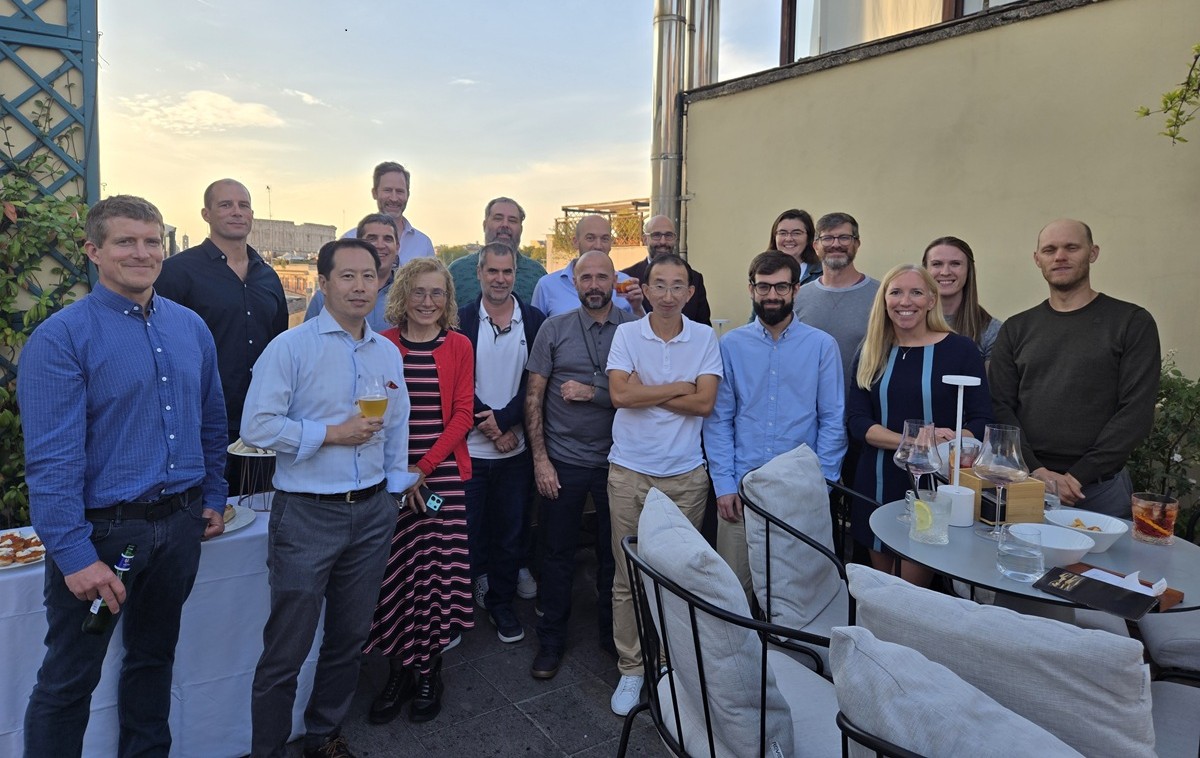November 10, 2025

In mid-October 2025, scientists from around the world gathered in Rome, Italy, for a three-day technical workshop on Global Blue Shark Management Strategy Evaluation (MSE). Hosted by The Ocean Foundation and The Pew Charitable Trusts, with key support from the FAO Common Oceans Program, Oceankind, and the Paul M. Angell Family Foundation, the event aimed to build progress toward sustainable, adaptive management procedures (MPs) for highly valuable blue shark (Prionace glauca) stocks worldwide.
The case for MSE
Blue sharks are the most commonly landed shark species in international waters and a key target for numerous fisheries, with worldwide blue shark landings estimated to be worth more than $400 million USD. However, their current management relies on stock assessments that are often hindered by data limitations and other uncertainties. Developing and implementing MSE-tested management procedures (MPs), also known as harvest strategies, that are robust to key uncertainties is therefore an important step towards ensuring responsible and adaptive management of these stocks.
The workshop on Global Blue Shark MSE was attended by leading experts in MSE and blue shark science, representing all four regional fisheries management organizations (RFMOs) that manage fisheries that catch the species: the Inter-American Tropical Tuna Commission (IATTC), the Western and Central Pacific Fisheries Commission (WCPFC), the International Commission for the Conservation of Atlantic Tunas (ICCAT), and the Indian Ocean Tuna Commission (IOTC). The workshop was timely, as both ICCAT and IOTC have begun initiatives to develop MSE-tested MPs for their respective blue shark stocks.
Setting the stage: common ground and shared challenges
The workshop kicked off with welcoming remarks from Grantly Galland (The Pew Charitable Trusts), Shana Miller (The Ocean Foundation), and Joe Zelasney (FAO), who set an inspiring tone and outlined the goals for the days ahead. First up on the agenda were regional overviews of current blue shark science and management efforts in the Atlantic, Pacific, and Indian Oceans, provided by leading scientists from each basin. These discussions highlighted that, across regions, existing stock assessments for blue shark are often hindered by data-poor conditions and significant uncertainties (e.g., conflicting CPUE indices and unreliability in historical catch data).
With these challenges in mind, as the day progressed, the group discussed the utility and feasibility of implementing an MSE approach for blue shark management. Presentations reviewed preliminary MSE work for blue shark conducted to date at ICCAT for the North Atlantic stock and highlighted the IOTC’s request to initiate blue shark MSE efforts. Participants discussed key considerations when developing operating models (OMs) to support potential MSE efforts, including regional uncertainties that should be represented across the suite of OMs. They also touched on the types of MPs that might be most appropriate for addressing the unique management challenges and population dynamics of these widely distributed sharks, which are often co-caught with other target species. Conversations stressed the importance of involving managers and stakeholders early in MSE processes to increase transparency, collaboration, and shared motivation for the eventual adoption of an MP.
Getting hands-on
Day Two initiated dedicated, highly technical hands-on sessions. The day began with a guided demonstration of the openMSE software framework, an open-source modeling tool widely used in RFMO MSE efforts, by its creators at Blue Matter Science. Experts from Blue Matter Science guided workshop participants through the entire MSE process using openMSE, from building OMs and defining performance indicators (PIs) to designing candidate MPs and evaluating their ability to achieve management objectives via the MSE feedback loop. This demonstration provided the foundation for group breakout sessions, where participants were organized based on their region of expertise. Breakout groups worked with real data from five blue shark stocks (North/South Pacific, North/South Atlantic, Indian Ocean) to create preliminary OMs, craft custom PIs, and explore hypothetical candidate MPs using the openMSE framework.
The final day of the workshop included a presentation on standard visualization tools for presenting MSE outcomes, featuring a demonstration of the Slick app for producing figures such as timeseries and tradeoff plots to convey candidate MP performance. Regional breakout groups then reconvened to finalize their modeling efforts and create Slick objects to visualize their work. The workshop culminated in final breakout group presentations, where each region showcased their products from the last two days, including their thought processes when developing hypothetical OMs and candidate MPs for blue sharks. Groups also offered suggestions and reviewed the procedural steps that would be required for progressing these efforts at their respective RFMOs. Comprehensive modeling work and summary presentations were completed for all five global blue shark stocks.
Building blocks towards sustainable management
This workshop offered a rare and invaluable opportunity to bring together experts from across ocean basins, providing a venue to discuss shared knowledge and challenges related to effective blue shark management. While only ICCAT and IOTC have committed to date to pursuing MSE-tested MPs for blue sharks, the preliminary technical work conducted last month in Rome has laid important groundwork for all stocks across all RFMOs. This progress toward the development and adoption of sustainable management procedures marks a key milestone for the long-term sustainability of this ecologically important species around the world.
For even more information, the FAO published a news story on the workshop, and a full workshop report will be available in the coming months.